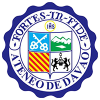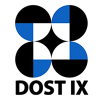On November 5, 2025, at 4:30 PM Philippine time and at 9:30 AM, Poland time, an innovative educational collaboration unfolded as Ateneo de Zamboanga University (AdZU), Philippines, and WSB University, Dabrowa, Gornicza, Poland, launched their first Collaborative Online International Learning (COIL) Pilot Class Introduction Phase meeting. This initiative marked the beginning of a dynamic intercultural exchange and learning between students and faculty members from two distinct academic and cultural backgrounds.
The pilot session brought together the participating classes of Prof. Perla Arlene S. Ledesma’s PED 8 subject or The Teaching Profession class (ADZU) and Dr. Lubomira Trojan’s Creativity Training class from WSB University, Poland. These two disciplines, education and design, offered a unique opportunity for students to explore teaching and creativity through a global lens. The session was conducted synchronously utilizing the Zoom platform, enabling real-time interaction and engagement. This format allowed students to not only share insights and perspectives but also to experience the richness of cross-cultural dialogue and interaction in a virtual classroom setting.
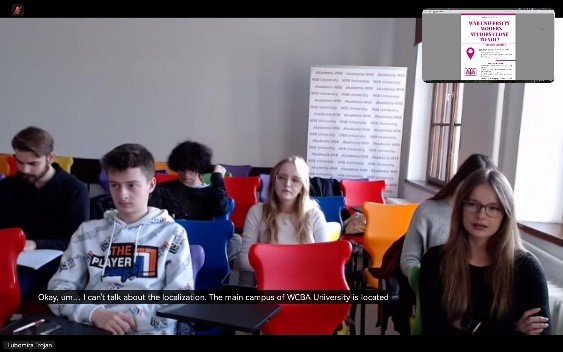
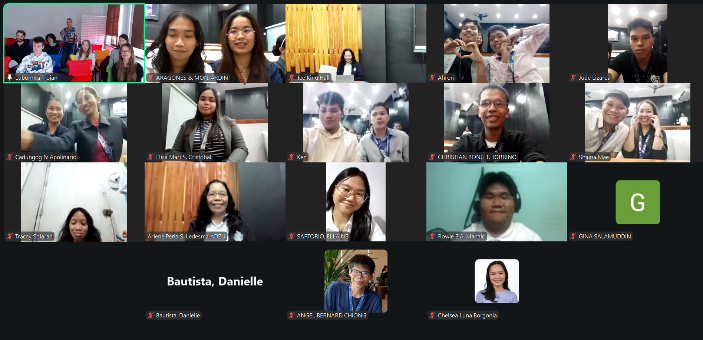
This pilot class set the stage and served as the Introduction Phase for the SPARK-COIL Project between all Ateneo in the Philippines and their European partners, WSB University and the University of Alicante in Spain.
The introduction session focused on: (a) Introducing students and faculty to each other (b) Establishing the goals and expectations of the COIL partnership, (c) Exploring cultural identities and academic contexts, by presenting and sharing about their respective University, its Vision and Mission, values and culture, and (d) Building rapport and setting the tone for future collaborative activities using online platforms and various learning modalities.
Through the short presentations, the students were able to get a glimpse of the education system in the Philippines and in Poland. Moreover, they were also able to highlights similarities and the distinctions of each educational system. The student-centered and experience-based learning and teaching approaches were utilized for this synchronous COIL introduction session. The students’ discussions and interaction were guided by a processing or reflection questions, such as, “What surprised or inspired you about the educational system of each country based on the presentations and sharing?”


The entire COIL process was anchored on a Structured Learning Experience (SLE) framework. The question and answer or the forum and sharing part was the most interesting learning opportunities for both groups of participants. The students are connecting, communicating, collaborating, and even sharing cultural norms and practices within the context of education. Both groups of students began to appreciate the value of internationalization in education and the potential of virtual exchange to enhance learning outcomes as articulated during the processing or reflection and from the feedback they provided to their respective professor immediately after the class ended. The students also engaged in a reflective assessment of the educational services in their respective countries. Through this process, they learned how to conduct comparative analysis and identify areas where further knowledge or improvement is needed. Most of the students said they had fun learning and they appreciate the experience of doing a global COIL.
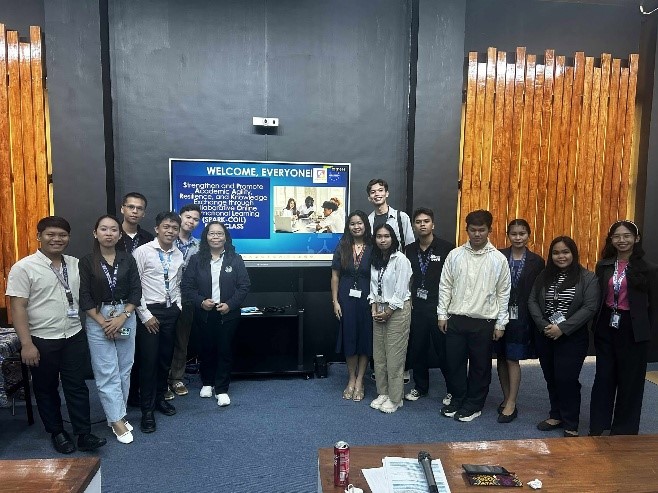
A Glimpse into the Future: The successful implementation of the COIL pilot class signals a promising future for COIL initiatives at both institutions. It lays the foundation for deeper collaboration, interdisciplinary projects, and sustained intercultural learning experiences. Starting November 6, 2025 until December 4, 2025, the students will be working asynchronously. They will be communicating to each other using the FB Messenger, emails, online platforms and Learning Management System (LMS), concerning their assigned tasks they are expected to deliver on December 5, 2025, during the Concluding Phase of the COIL Pilot class.
Students, intrigued by the differences in approaches to education and mutual attitudes related to professional development, will explore the topic of education in their countries in greater depth. WSB students will prepare a survey and a set of in-depth questions that will allow them to identify areas that inspire project challenges and the search for innovative solutions. ADZU students will deliver and present the Comparative Analysis Paper of the Educational System of Poland and Philippines and WSB students will present Innovative Solutions to address the challenges of the education system of both nations using Design Thinking approach and framework.
As global education continues to evolve, partnerships like this one, between AdZU and WSB University, exemplify how technology and shared vision can transcend borders and bring learners together in meaningful, transformative ways.


